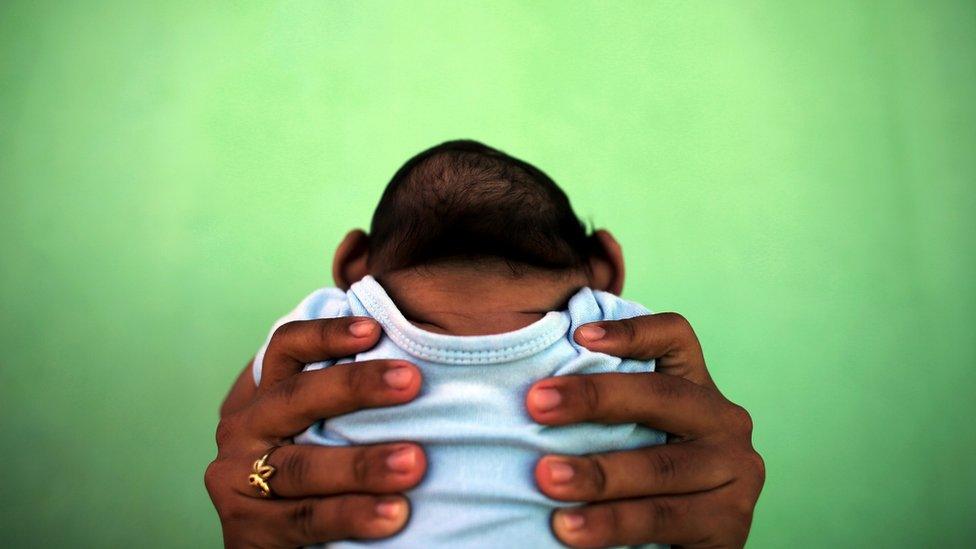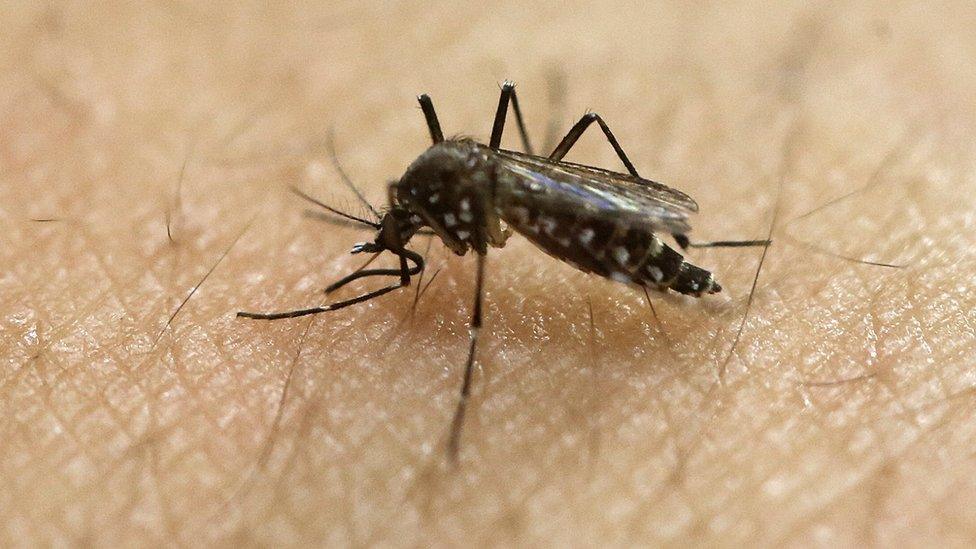First Guatemalan baby born with Zika-linked microcephaly
- Published

Babies born with microcephaly often have developmental disabilities
A Guatemalan baby has been born with microcephaly linked to the Zika virus, officials say.
The child is believed to be the first born with a Zika-linked defect in the Central American country.
The infection is suspected of causing babies to be born with underdeveloped brains and abnormally small heads if the mother has it during pregnancy.
Children with microcephaly face lifelong difficulties, including intellectual impairment.
It can be fatal. Brazil has been the centre of the current outbreak of the virus.
Everthing you need to know about Zika and microcephaly
Texas baby dies from Zika-linked defect
WATCH: The story of Brazil's Zika 'bucket baby'
Carlos Mejia, director of the infectious diseases department at Guatemala City's Hospital Roosevelt, said two other babies were undergoing tests to determine if their mothers had caught Zika while pregnant.
Zika is commonly transmitted through mosquitoes but can also be transmitted sexually.
The UN estimates, external says that 20% of women in Guatemala who are sexually active are not using contraception, despite being fertile and not wanting to get pregnant.
Abortion is illegal in Guatemala, external - it can only be performed to save a mother's life.

Zika virus around the world

The Aedes aegypti mosquito spreads viruses like Zika, dengue, chikungunya and yellow fever
More than 60 countries and territories now have continuing transmission of Zika
Cases of Zika-related birth defects have been centred in Brazil, with about 1,800 instances confirmed to date
At least 1,955 people in the US have contracted Zika while travelling outside of the country, and about 22 cases have been sexually transmitted
So far 25 people have contracted the virus from local mosquitoes in Florida
The US territory of Puerto Rico has seen nearly 6,500 locally acquired cases and 30 associated with travel
Sources: WHO, CDC, Florida Department of Health
